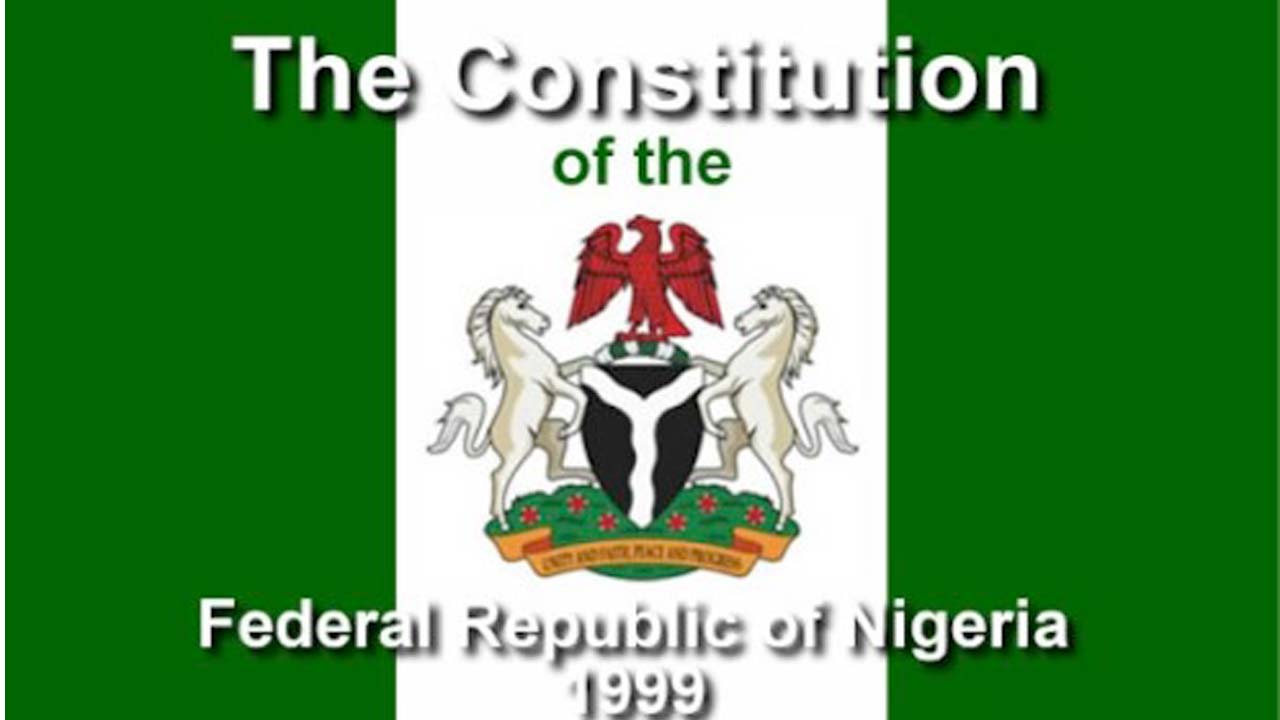Former Commonwealth Secretary-General Chief Emeka Anyaoku has declared that even divine intervention couldn’t rescue Nigeria from its current challenges while operating under the 1999 Constitution. This bold statement came during the launch of a biography celebrating Emeritus Professor Akinjide Osuntokun at the Nigerian Institute of International Affairs (NIIA) in Lagos.
Speaking to a distinguished gathering that included prominent political figures and thought leaders, Anyaoku emphasized that Nigeria’s path to development remains fundamentally blocked by its current constitutional framework. The elder statesman drew from global historical examples to illustrate how pluralistic nations either thrive or collapse based on their constitutional approach to diversity.
The universal lesson is that pluralistic countries which have survived as single political entities in unity and progress are those that address their pluralism with genuine federal constitutions,” Anyaoku explained, citing successful examples like India, Canada, and Switzerland. In contrast, he pointed to the cautionary tales of nations that failed to properly manage their diversity, such as Yugoslavia’s dissolution into seven sovereign states and Sudan’s split after three millennia of existence.
The high-profile event drew an impressive array of Nigeria’s political and social elite, including representatives of the First Lady, Senator Oluremi Tinubu, former Ekiti State governor Dr. Kayode Fayemi, Labour Party’s 2023 presidential candidate Peter Obi, and numerous other distinguished personalities from various sectors of Nigerian society.
Anyaoku’s analysis was particularly pointed when discussing Nigeria’s current challenges. He argued that the country’s problems extend far beyond mere political leadership, suggesting that even supernatural intervention – metaphorically represented by “Angel Gabriel or Mala’ika Jibril” – would prove insufficient to address Nigeria’s challenges under the current constitutional framework.
The former Commonwealth chief drew a sharp contrast between Nigeria’s current situation and its early post-independence years, noting that the country experienced greater unity and development under the 1960/63 Constitution. He attributed the current challenges to the military’s intervention in 1966, which introduced a unitary system that has persisted in various forms to the present day.
Adding another dimension to the discussion, Peter Obi highlighted a concerning cultural shift in Nigerian society. The former presidential candidate criticized the nation’s tendency to celebrate individuals who contribute little to national development, warning that this misplaced appreciation undermines societal progress and educational values.
The event, centered around the launch of Professor Osuntokun’s biography, provided a platform for serious discussion about Nigeria’s constitutional challenges. Dr. Fayemi, reviewing the biography, detailed how the book project, conceived in 2018, captures not only Osuntokun’s personal journey but also reflects broader themes in Nigeria’s historical development.
Anyaoku’s call for constitutional reform emphasized the urgency of addressing Nigeria’s current challenges, including divisiveness, economic underperformance, widespread poverty, insecurity, and corruption. He stressed that these issues cannot be effectively tackled without fundamental constitutional changes that better reflect Nigeria’s diverse nature and federal character.
The elder statesman’s message resonated particularly strongly given the current national context, where various regions and groups continue to debate the country’s political structure and future. His reference to successful pluralistic nations served to underscore the possibility of maintaining unity while respecting diversity through appropriate constitutional frameworks.
As Nigeria continues to grapple with multiple challenges, Anyaoku’s intervention adds a powerful voice to the ongoing debate about constitutional reform. His analysis suggests that the path to national progress requires more than good leadership or divine intervention – it demands fundamental structural changes that acknowledge and accommodate Nigeria’s diverse nature through a truly federal constitution.
The gathering of such prominent figures at the NIIA for this discussion underscores the growing consensus among Nigeria’s political and intellectual elite about the need for constitutional reform. As the country moves forward, the insights shared at this event may well prove crucial in shaping the discourse around Nigeria’s constitutional future and its path to sustainable development.



